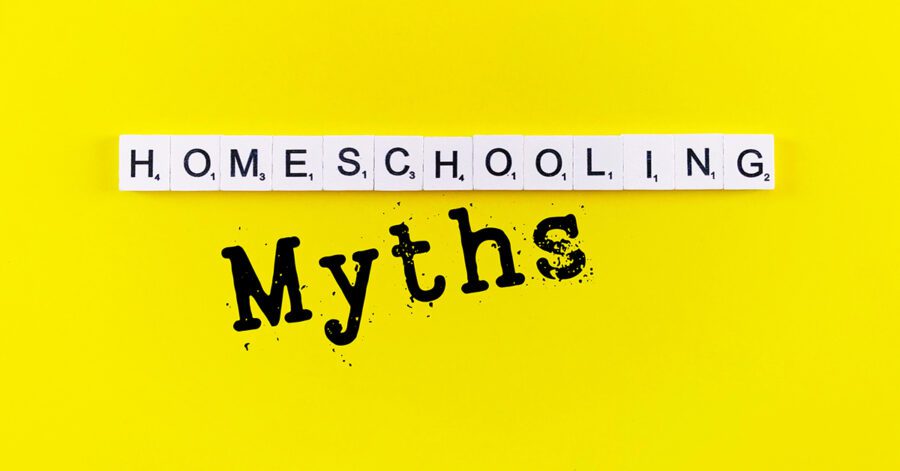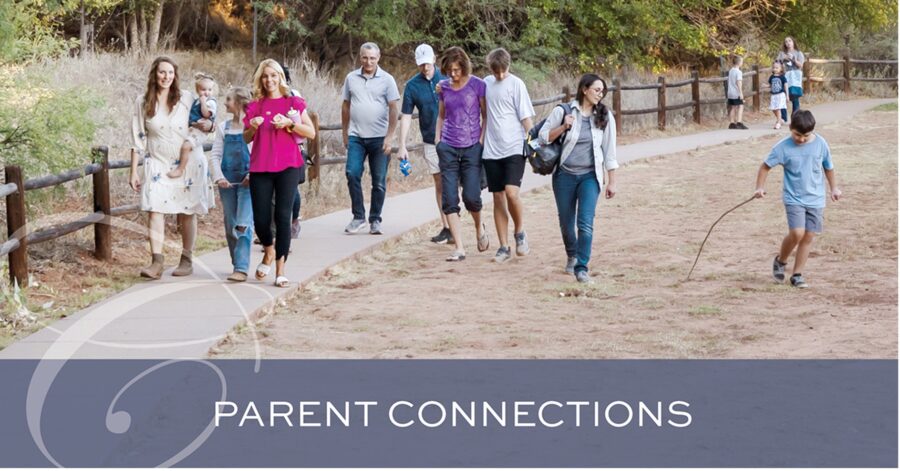Although homeschooling is becoming more and more mainstream, myths, misinformation, and misconceptions about homeschooling are still all too common. Don’t fall for these fallacies!
Six Misconceptions about Homeschooling
Stop me if you’ve heard this one before: “Homeschoolers are weird and poorly socialized!” Or how about: “Parents aren’t teachers! Let the teachers do the teaching!” Let’s take a look at these and other misconceptions about homeschooling and get the facts straight.
The Teacher Myth
Myth: Parents are not qualified to teach their children.
Reality: Actually, parents are their children’s first teachers, from teaching them how to tie shoes to how to ride a bike. Parents know their children better than any other teacher ever could. This means only they can tailor the child’s education to align with his or her personal needs, interests, and learning styles. With the right tools, like a comprehensive curriculum, an easy-to-follow roadmap, and support from other homeschooling families, any parent can homeschool! You’re their first teacher. Be their best teacher.
The Socialization Myth
Myth: Homeschool families stay home all day and lack socialization.
Reality: Flexibility in learning locations is a common reason families choose to homeschool. And many families leverage that flexibility to help their children experience more, not less! Whether it’s studying natural science at a local park, practicing math at the grocery store, or completing lessons between swim practices, the whole world is the homeschool family’s classroom. Families also often partner together outside the home through enrichment co-ops, field trip groups, and our unique Classical Conversations® communities. Remember, not all homeschooling is schooling at home!
The Sports and Activities Myth
Myth: Homeschool students can’t participate in extracurricular activities.
Reality: Homeschool students can be very involved in extracurriculars. In fact, sometimes being homeschooled gives students an advantage to accept opportunities traditionally schooled children can’t, like participating in daytime community events, engaging in morning private lessons, etc. Homeschool students can play sports in a homeschool league, on a club team, and, in some states, on their district’s school team. For community service, students can volunteer at a donation center or serve at their local church. There are also local clubs and groups to consider, from scouting organizations to book clubs. With the flexibility to create your own schedule during the week, the possibilities are endless!
The Undereducation Myth
Myth: Homeschool families hardly spend time learning.
Reality: Actually, homeschool families never stop learning! In addition to their structured curriculum, they often pursue opportunities to learn through activities, experiments, hikes, literature, and more. Still, different families have different learning styles, so it is difficult to place homeschool families in just one box. Some prefer to organize their day much like traditional schools, with an hour-long block per subject. Others prefer a more relaxed approach, with each day different from the last.
The Homework Myth
Myth: Homeschool students don’t complete actual homework.
Reality: A more accurate statement might be that homeschool students only have homework. Ba-dum-tss! Jokes aside, most homeschool students spend time working from a structured curriculum, and that includes completing assignments on their own, just like students in a traditional school. For example, our Classical Conversations Challenge programs intentionally provide exercises, papers, and other assignments for students to complete independently, so they learn how to motivate themselves and manage their time well.
The Success Myth
Myth: Homeschool students won’t be able to get into college or succeed in life.
Reality: This is a common anxiety for many parents considering home education for their children. But the evidence proves otherwise! According to Brian Ray from the National Home Education Research Institute, studies show that homeschoolers, when compared to their traditionally-schooled peers:
- Have increased “social, emotional, and psychological development”1Brian D. Ray, “A systematic review of the empirical research on selected aspects of homeschooling as a school choice,” Journal of School Choice, November 27, 2017, https://www.tandfonline.com/doi/full/10.1080/15582159.2017.1395638.
- Attain more relative success as adults2Brian D. Ray, “A systematic review of the empirical research on selected aspects of homeschooling as a school choice,” Journal of School Choice, November 27, 2017, https://www.tandfonline.com/doi/full/10.1080/15582159.2017.1395638.
- “Go to and succeed at college at an equal or higher rate than the general population”3“Research Facts on Homeschooling,” National Home Education Research Institute, September 9, 2021, https://www.nheri.org/research-facts-on-homeschooling/.
So, yes, homeschoolers can go to college. And when they get there, they tend to do better than their public school peers!
Read: “Can Homeschoolers Go to College? Short Answer: YES!”
Facts about Homeschooling
There are many myths about homeschooling, but the facts are clear: homeschooling is doable and highly effective. If you’d like to read more facts and statistics about homeschooling, check out the National Home Education Research Institute’s comprehensive report.
If you’re thinking about homeschooling—don’t let these myths mislead you! You’ve got this, and we’ve got you.




